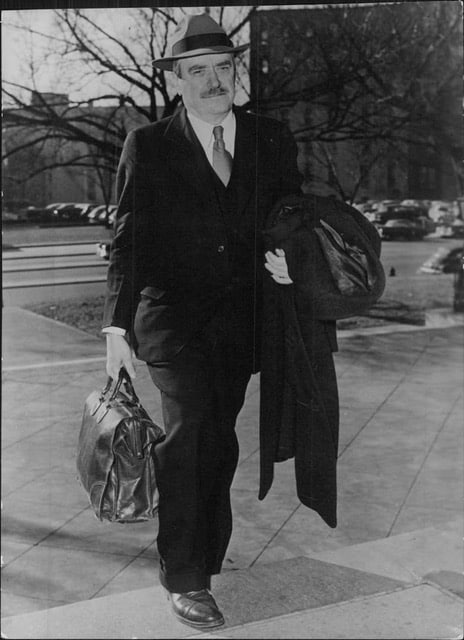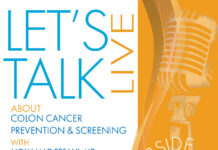
Earl Browder, two time Communist Party candidate for President
By Mary Hoar, City of Yonkers Historian, President Emerita Yonkers Historical Society, recipient of the 2004 Key to History, Member of the Yonkers Landmarks Preservation Board, and President Untermyer Performing Arts Council
Monday, October 2nd
October 2, 1941: City Hall employees were overjoyed by the news… the City Hall elevator was running once again! Building Superintendent John Brady had closed it down early summer because it was unsafe. The elevator cage door was replaced, but defense priorities delayed replacement of the steel doors on the building’s five floors. Since it was estimated it would take at least two months to get the doors, City Manager Whitney told DPW Commissioner Chris Sheridan operating the elevator would be just fine.
October 2, 1941: Following orders from Attorney General John Bennett, Jr., Locust and Atherton Streets were closed to public use to protect Otis Elevator’s defense work. The first barrier at Atherton Street, heavy street and sidewalk gates, was put into place. The second barrier for Locust Street was delayed by defense priorities! Otis’ armed guard corps would guard the barriers and open the gates only to Yonkers Police and Fire Departments, the US Navy, the US War Department or other Federal departments who might need to use those streets.
Tuesday, October 3rd
October 3, 1949: DPW Commissioner Matthew Kelly announced Yonkers trucked ten to fifteen truckloads of refuse to the county dump at Croton every day; our incinerator could not handle of the size of Yonkers’ daily collections. He pled with building managers and homeowners to separate burnable trash from ashes and other non-burnables, vowing in the future to make separate collections so ashes could be hauled to the reclamation project on Central Park Avenue.
October 3, 1951: The Federal Mediation and Conciliation Service requested both sides of the Otis Elevator Company strike meet with a Service commissioner to resolve issues. Otis Personnel Manager Summerhayes published an article in The Herald Statesman stating the company was ready to “resume discussions… for an amicable settlement.” Edwin Pattison, president of the union, stated the union had been ready to meet for five days, (two days before the strike began) but would not recognize “bids to resume negotiations submitted to the newspapers… Mr. Summerhayes is well aware of the address and telephone number of the union.”
Wednesday, October 4th
October 4, 1922: Thousands of men, women and children gathered in front of the Yonkers Statesman building on Main Street to watch the graphic presentation of the first World’s Series game at the Polo Grounds between the Giants and the Yankees on the newspaper’s giant magnetic game board. The Giants won.
October 4, 1940: City Manager Raymond Whitney was questioned for two hours before a Grand Jury investigating a Yonkers pinball licensing operation.
October 4, 1943: Yonkers was abuzz because First Lady Eleanor Roosevelt mentioned Yonkers in her column, “My Day.” While speaking about her recent trip to the South Pacific, she mentioned sitting with a “youngster from Yonkers” who attended Colgate. She was charmed when he mentioned he passed through Hyde Park traveling back to school. Unfortunately, she didn’t say who the student was!
Thursday, October 5th
October 5, 1915: For the first time in Yonkers history, women were allowed to act as watchers at the election polls!
October 5, 1942: Because it was such a quickly growing industry in Yonkers, five leading glove manufacturers formed a trade association to further mutual interests. Members of the Yonkers Association of Knit Glove Manufactures, Inc. were Becopa Glove Mills, Hega Knitting Mills, Jerome Knitting Mills, Riverdale Glove Mills, and Sternwald Knitting Mills. They planned to work together and exchange information to improve its members, to protect the industry from unjust and oppressive taxation, and to justly settle differences between its members. All Yonkers glove firms were producing goods for defense work.
Friday, October 6th
October 6, 1906: The Common Council met to hear public grievances against the telephone company. Several Aldermen charged employees were working too many hours, the company did not employ enough operators, the service was not uniform throughout the city and connections between New York and Yonkers were deplorable.
October 6, 1922: American golf champion Gene Sarazen underwent emergency surgery for appendicitis at St. John’s Hospital! He was visited by many sports luminaries who stopped by his hospital room to wish him well.
October 6, 1940: An unnamed Yonkers Republican election official blocked Earl Browder, Communist Candidate for the President, from registering for the election. After the Highland Place resident consulted his attorney, he returned on another night and had no problem.
Saturday, October 7th
October 7, 1917: Thirty Yonkers Civil War Veterans escorted a group of men leaving Yonkers to report for Army service on their march from City Hall to the Yonkers Train Station.
October 7, 1918: Yonkers Public Schools were ordered closed for two weeks and all persons under 18 were barred from local theaters as a result of the Spanish influenza epidemic in the Eastern United States. More than 2500 cases had been diagnosed in Yonkers, with three deaths reported by Chief Health Officer Dr. Clarence Buckmaster.
Sunday, October 8th
October 8, 1939: The Westchester Lighting Company, in its efforts to prevent sabotage on its facilities because of the unrest in Europe, hired trained watchmen for its substations and important facilities in the company system.
October 8, 1941: After reminding the Board of Education that Yonkers teachers had “returned” over two and a half million dollars over eleven years, the Yonkers Teachers Association asked the Board of Ed trustees to put the actual full salary schedule on file with the State Education Office in their 1942 budget.
Questions or comments? Email YonkersHistory1646@gmail.com.
For information on the Yonkers Historical Society, Sherwood House and upcoming events, please visit our website www.yonkershistoricalsociety.org, call 914-961-8940 or email info@yonkershistoricalsociety.org





